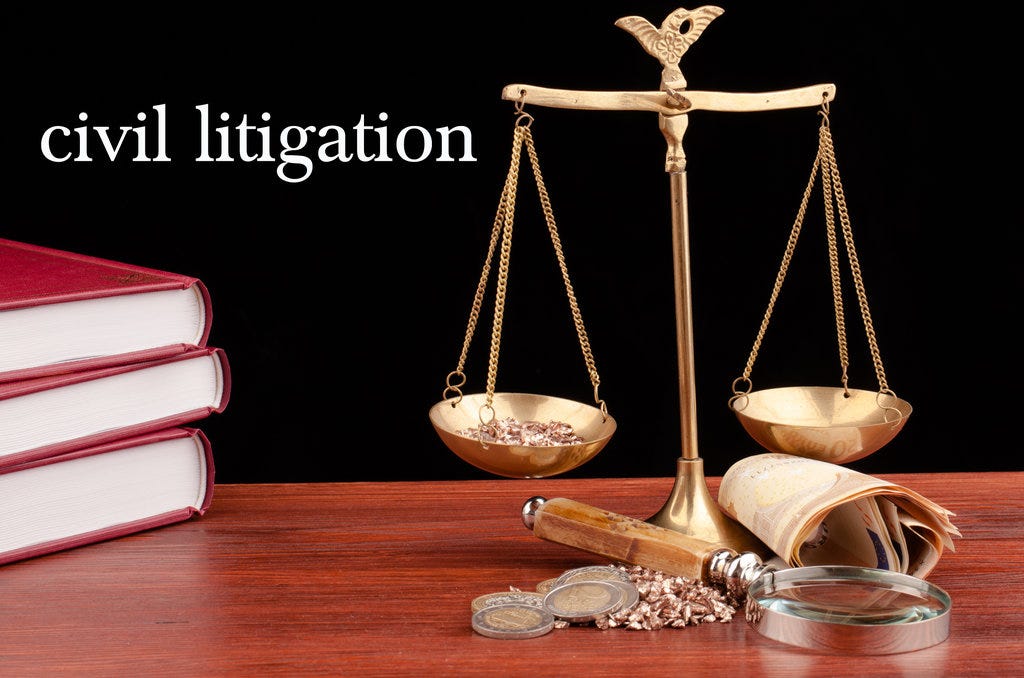Legal disputes can arise in everyday life. They range from business conflicts to personal injuries. In 2025, navigating these issues requires skilled support. This guide focuses on civil litigation attorneys. These experts handle non-criminal disputes. They seek resolutions through courts or settlements.
Why read this? It offers practical advice. You’ll learn how to find and work with civil litigation attorneys. The content draws from recent developments. It aims to equip you with knowledge for better decisions. Expect clear explanations. No jargon overload. Just straightforward facts.
Civil litigation covers many areas. From contracts to property rights. Attorneys in this field protect your interests. They build strong cases. This guide breaks it down step by step.
Civil Litigation
Civil litigation involves disputes between parties. One side seeks compensation or action from another. It’s different from criminal law. There, the state prosecutes for crimes. Here, individuals or businesses resolve private matters. The process starts with a complaint. The plaintiff files it in court. The defendant responds. Discovery follows. Parties exchange information. Trials may occur if no settlement happens. Appeals are possible too.
Key goal: Fair resolution. Courts decide based on evidence. Preponderance of evidence standard applies. It’s lower than criminal’s beyond reasonable doubt. Many cases settle out of court. This saves time and money. Mediation or arbitration often helps. Civil litigation attorneys guide clients through these options.
The Role of Civil Litigation Attorneys
Civil litigation attorneys represent clients in disputes. They advise on legal rights. They draft documents like complaints and motions. In court, they argue cases.
- These professionals investigate facts. They interview witnesses. They gather evidence. Negotiation skills matter. Many resolve cases without trials.
- They also handle appeals. If a decision goes wrong, they challenge it. Experience counts. Good attorneys know local rules. They predict outcomes based on past cases.
- In 2025, their role expands. They deal with digital evidence. They use tools for efficiency. Clients benefit from their strategy. Civil litigation attorneys turn complex situations into manageable plans.
Common Types
Civil cases vary widely. Here are some frequent ones.
- Personal Injury: Claims for harm from accidents. Like car crashes or slips. Victims seek medical costs and lost wages.
- Contract Disputes: Breaches of agreements. One party fails to deliver. Courts enforce terms or award damages.
- Property Disputes: Issues over ownership or boundaries. Includes landlord-tenant conflicts.
- Family Law Matters: Divorce, custody, or support. Though specialized, they overlap with civil litigation.
- Business Litigation: Corporate conflicts. Such as partnership disagreements or intellectual property theft.
When to Hire
Not every dispute needs a lawyer. But complex ones do. Hire when stakes are high. Like large financial losses. If laws confuse you, get help. Deadlines matter. Missing them hurts your case. Facing a lawsuit? Respond quickly. An attorney drafts answers. For potential claims, consult early. They assess viability. Preserve evidence. In 2025, remote options make hiring easier. Civil litigation attorneys offer virtual meetings. Act soon to protect rights.
How to Choose the Right Civil Litigation Attorney
Selection takes care. Start with research. Check online reviews. Look at bar association sites.
- Ask for referrals. Friends or colleagues may know good ones.
- Interview candidates. Ask about experience. Inquire on similar cases.
- Check credentials. Verify licenses. See trial records.
- Consider fees. Some charge hourly. Others contingency for injuries.
- Specialization helps. Pick those focused on your issue.
- Communication style counts. Choose responsive ones. Trust your gut.
Trends in Civil Litigation for 2025
- Litigation evolves. In 2025, cybersecurity rises. Data breaches spark suits.
- Class actions grow. Especially in privacy and consumer rights.
- ESG factors influence cases. Environmental claims increase.
- Regulation changes affect disputes. New laws on AI and tech.
- Employment litigation stays common. Labor issues persist.
- Intellectual property fights escalate. With innovation booms.
- Civil litigation attorneys adapt to these shifts. They track updates for clients.
- Payments and finance see more cases. Global trends play in.
The Impact of Technology
- Tech transforms litigation. AI aids research. It scans documents fast.
- E-discovery tools handle data. They find key evidence.
- Virtual courts continue. Post-pandemic, remote hearings save time.
- Blockchain secures records. Reduces fraud claims.
- Predictive analytics forecast outcomes. Helps strategy.
- In 2025, AI ethics emerge. Tools must be fair.
- Civil litigation attorneys learn these. They stay competent.
- Challenges exist. Like data privacy in tech use.
- Benefits outweigh. Faster resolutions. Lower costs.
Conclusion
This guide covers essentials. From basics to trends. Civil litigation attorneys provide vital support. In 2025, their expertise matters more. Use this info wisely. Research further if needed. Consult professionals for your situation. Strong representation leads to better results. Take the next step today.
For further details visit: webinsurance.net/
FAQs
1. What do civil litigation attorneys do?
They handle disputes, represent in court, negotiate settlements.
2. How much do they cost?
Varies. Hourly $200-500. Contingency 30-40% of winnings.
3. Can I represent myself?
Yes, but risky for complex cases.
4. What’s new in 2025?
More tech integration. Rise in cyber disputes.
5. How long do cases take?
Months to years. Settlements speed it up.





